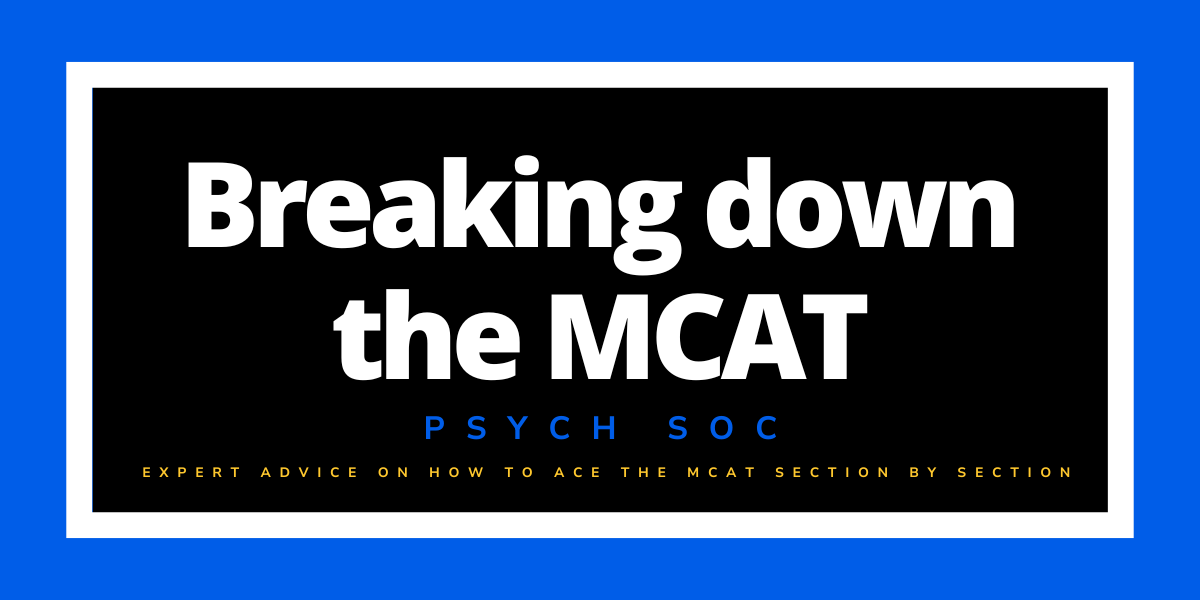MCAT Breaking down the MCAT: Psych Soc

Moderator
🚨The Psych/Soc portion of the MCAT can often feel very daunting, like it’s this giant hurdle built of (often unfamiliar) terms and theories that can only be overcome through memorization. As a result, a lot of students turn to flashcards as a study tool but then become overwhelmed when their flashcard decks continue to rapidly grow. When helping students with this section, I always start with three major, interconnected pointers that help make score improvements in this section of the test lest onerous.
First, ask yourself if flashcards are actually an effective study tool for *you.* Flashcards can be an excellent study tool, but they are not effective for everyone; however, they have become such a ubiquitous feature of studying that people often assume they must find a way to incorporate them into their prep plan. But that is simply not true – flashcards do not work for everyone, and you should reflect back on if they have helped you in the past, or if you’re trying to include them
because you feel like you’re supposed to. Second, don’t try to memorize every new word or theory you come across. The MCAT rewards critical reasoning and creative thinking.
As a physician, you will constantly be presented with new situations, new combinations of symptoms, and new information, and you need to be able to reason through these situations when your medical textbooks are not especially helpful. The MCAT is asking us to demonstrate that we have the foundation of this skill – that we can reason through something new and make deductions. The meaning of many psych/soc terms can be deduced by thinking about what the prefix and suffix mean and using context clues in the sentence. Building these creative thinking skills now will serve you in medical school and in your career as a physician.
Finally, the third pointer is to move away from the idea that we must memorize hundreds of new terms, and instead think about how these terms and ideas are linked. Take theories of emotion, for example– when you’re learning about the James-Lange, Cannon-Bard, and Schachter-Singer theories, don’t approach them as three separate theories that need to be memorized. Instead, think about their stories and how they connect; each idea works to get closer to understanding how humans process emotions, and they build on each other through time and complexity. Which brings us full circle to my point about flashcards – trying to memorize these theories using flashcards often leads to frustration because this isn’t really flashcard material. Psych/soc is the story of us trying to understand ourselves, and that’s bigger than what goes on a flashcard. Switching approaches to focus on the interconnectedness amongst theories and terms, with a focus on the big-picture components, means you will be able to deduce answers to questions you have never seen before, both on the MCAT and as a physician.
